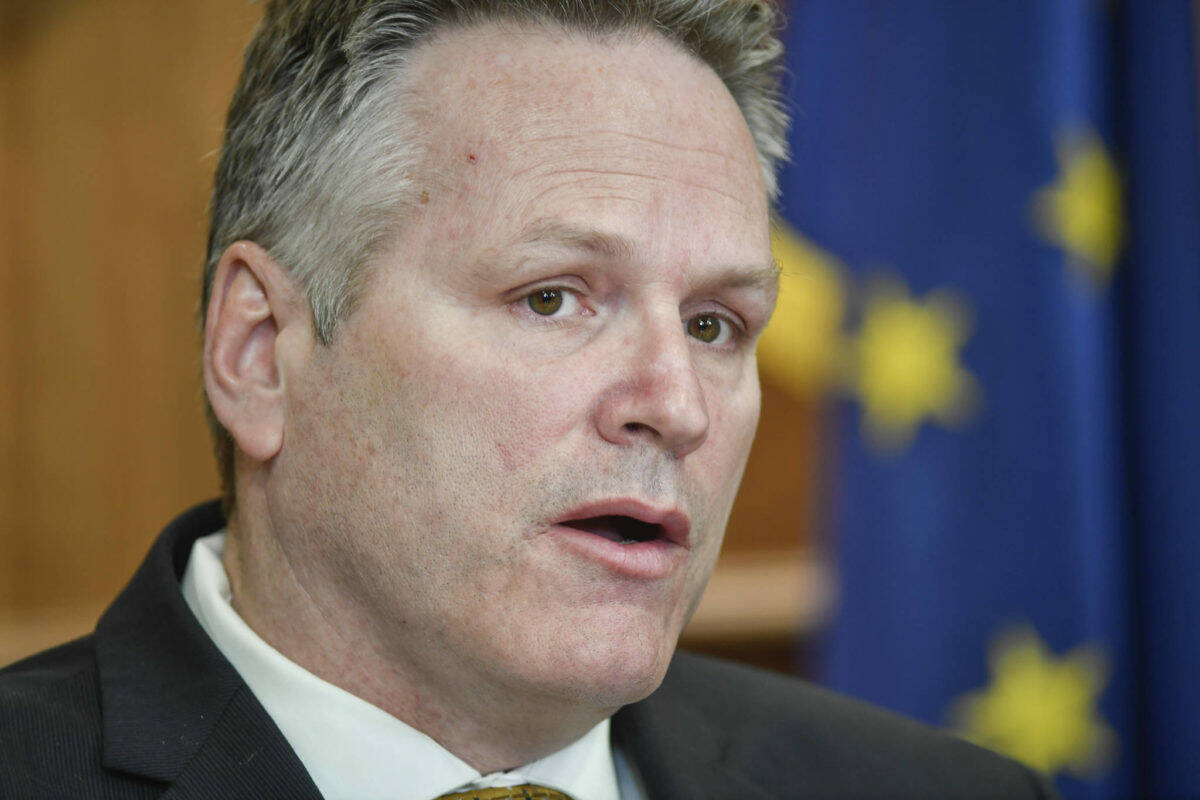The latest Crime in Alaska Report released on Oct. 3 revealed that the downward trend in rates continues.
For the third straight year, from 2019 to 2021, Alaska’s overall crime rate declined by double digits on an annual basis and is now at the lowest level in 41 years.
Compared to 2018, our crime rate is down by more than 37 percent. Every category other than arson declined in 2021, which is attributable to a single suspect linked to seven incidents.
While violent crimes such as murder and aggravated assault, and property crimes such as motor vehicle theft are soaring nationally since the “defund the police” movement started in 2020, the opposite is happening here in Alaska.
Our rate of violent crime dropped by 9.7 percent in 2021, and the property crime rate dropped by 17.3 percent. We all remember the headlines coming out of Anchorage like this one from 2018: “$45 million in property was stolen in Anchorage last year. This year is worse.”
The motor vehicle theft rate in Alaska has dropped by more than half, or 55 percent, since that time.
This administration declared war on criminals in 2019, and while the message we send criminals and would-be offenders is important, policies matter much more.
We repealed the catch-and-release policies of the failed Senate Bill 91 in 2019, and despite our fiscal challenges, this administration has proposed and received bipartisan support for record resources directed toward public safety in each of its four budgets.
There is no lack for stories in the Lower 48 about jurisdictions facing a critical shortage of police officers and recruits. Here in Alaska, we’ve graduated one full Public Safety law enforcement academy this year and another full one is underway and due to graduate in November.
Both will add substantially to our ranks of State Troopers, Village Public Safety Officers, and municipal law enforcement officers.
Resources matter, and we’ve remained committed to ensuring that our Troopers, VPSOs, Corrections Officers, and prosecutors have what they need.
In 2011, we had 96 VPSOs working out of 101 funded positions. At the end of 2018, we were down to just 45 working and less than 80 funded positions.
We’re pleased to report that we’re rebuilding the VPSO ranks, and now have 63 working with more in training.
We’re supporting our VPSOs with pay increases approved this year, and we’ve put a record amount of funds into the Alaska Housing Finance Corporation’s program that builds professional housing for law enforcement, teachers, and health care workers in our rural communities.
We’ve also added the first major crimes investigators who live and work in rural Alaska. Six major crimes investigators have been authorized for our rural hub posts in Bethel, Dillingham, Nome and Kotzebue.
We’ve also authorized two Tribal liaisons for the Department of Public Safety, dozens of other professional support positions to improve public safety outcomes and hired retired Trooper Lt. Lonny Piscoya from Nome in our new position of Missing or Murdered Indigenous Persons investigator.
Line prosecutors in our court system are getting raises to improve retention, and competition for job vacancies. We funded additional resources to clear cases delayed during the pandemic.
After hundreds of sexual assault kits were left on shelves untested for decades our team put in place policies to make sure that every sexual assault kit is tested in days, not years. To date, a second suspect has been charged using evidence from a recently processed kit. We’re also collecting owed DNA that’s been neglected since the 1990s.
This report is an appropriate moment to recognize the progress we’ve made, and to thank the Troopers, VPSOs, local law enforcement officers, prosecutors, probation officers, and many others who have contributed to the declining crime rate.
However, no one in this administration is spiking the football.
The report reminds us that our rates for violent crime and rape remain unacceptably high, and that much work remains to be done.
Every Alaskan has the right to live free from fear no matter who they are or where they live, and protecting this right is the most important job for any elected or appointed official.
We succeeded in correcting our outdated consent laws this year, but other pieces of legislation under the People First Initiative aimed at protecting victims’ rights and enhancing penalties for offenders were unfortunately held up in the House State Affairs Committee without even receiving a hearing.
Alaskans can rest assured that this administration will continue to emphasize public safety by utilizing every State resource available and by working with the next Legislature to keep driving our crime rates down, not just for the next four years, but for the next 50 and beyond.
Mike Dunleavy is the 12th governor of Alaska. James Cockrell serves as public safety commissioner. Treg Taylor is a attorney general for Alaska.


